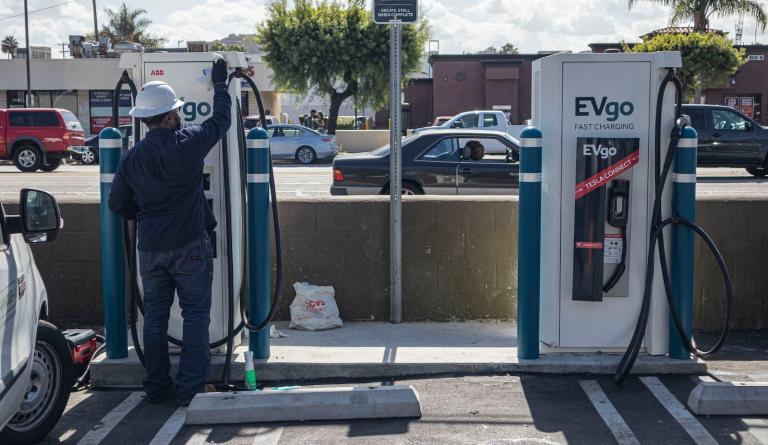The death of coal in the United States has not been exaggerated. Employment has dropped by nearly half over the past decade as cleaner and cheaper alternatives pushed the once-dominant fuel to the wayside. And what’s more, President Joe Biden’s plans could speed up the trend.
It’s against this backdrop that the United Mine Workers of America, the country’s largest union representing coal miners, announced on Monday that it supported a renewable energy future — provided that miners get “good-paying jobs” in return. The union indicated that it would support Biden’s climate policies if the administration laid out a comprehensive strategy for helping communities whose livelihood still relies on coal.
Cecil Roberts, the president of the union, said at a press conference that the federal government had neglected coalfields in the past. “We believe the second coming of the Lord’s going to get here before a just transition makes it our way,” he joked. “It’s time for the people in power to say, ‘This is how we’re going to do this.’”
His criticism is backed up by a report from Montana State University last month. Researchers wrote that the United States has no cohesive plan to help coal communities adapt, sending “conflicting messages” and sowing uncertainty. That has left energy policy up to local governments.
The phrase “good-paying jobs” was a refrain at the press conference about the announcement. Senator Joe Manchin, the West Virginia Democrat who heads the Senate’s Energy and Natural Resources Committee and a well-known coal champion, said that one of his top priorities was ensuring coal miners won’t be forgotten as the country shifts to clean energy.
On the job creation front, the union asked for tax incentives for the manufacturing of parts for solar panels and wind turbines in coalfield areas, with laid-off miners given hiring preference for those jobs. It also called for funding to clean up abandoned mines, which would provide jobs and help protect public health. Biden’s infrastructure and jobs plan, announced a few weeks ago, touches on many of the mine workers’ demands. It includes funding for reclaiming mines and carbon capture research, along with a dislocated workers program that would provide job training for fields like clean energy and manufacturing.
The union is also asking for retaining existing coal jobs — though they’ve been vanishing at a rapid clip. The number of people working in the coal industry fell from 86,000 people a decade ago to a recent 44,000, a stark drop that has devastated mining towns across Appalachia. Those jobs were displaced first by the growth of natural gas, then foreign competition, then the rise of solar panels and wind turbines and, most recently, the economic fallout from coronavirus. The union’s new report, called “Preserving Coal Country,” warns that federal policies to curb carbon emissions could “dramatically slash coal employment further, and soon.”
The union’s shift could prove a tough sell. The average coal industry worker puts in 50 hours a week for $75,000 a year — which often comes with a pension and health insurance. Exposure to coal mine dust is a health hazard, but some are skeptical the alternatives will pay as well. “It’s not fair to take somebody’s job away from them and push them into another career,” one miner told NBC News.
While Roberts said that the union would oppose any climate plan that ignored coal workers, he appeared to believe that some of the resistance to renewables was misplaced. “Anybody in Appalachia that would say, ‘Well I don’t want good-paying jobs in Appalachia because they might come from the Biden administration’ — I find that to be utterly ridiculous,” he said at the press conference. “We’ll take the good-paying jobs any way we can get them.”
The union’s new report echoes the idea that the world is at an inflection point when it comes to clean energy. “Change is coming, whether we seek it or not,” it reads. “Too many inside and outside the coalfields have looked the other way when it comes to recognizing and addressing specifically what that change must be, but we can look away no longer.”




